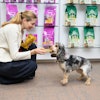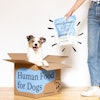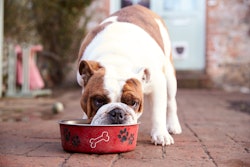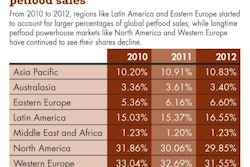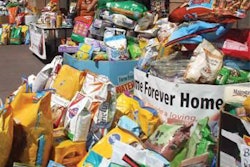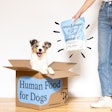Private label products have never become a significant part of the US petfood industry, reaching only as high as 9.7% of the market in 2010, according to Packaged Facts. In fact, in 2011, US private label petfood sales slipped 4.4%, decreasing their overall share of the market to 9%, SymphonyIRI data showed.
However, it's worth noting that SymphonyIRI tracks only mass market sales, excluding Walmart, so its data misses key retailers such as that discount giant as well as those at the other end of the pricing spectrum, such as Whole Foods and PetSmart -- and all have increasingly invested in their own store brands.
During Petfood Forum 2013, David Sprinkle of Packaged Facts presented data showing how pet owners have increasingly turned to single, specific channels for their pet product purchases, leading to upticks in shopping rates for such channels as pet stores, where 54% of respondents to the Simmons National Consumer Survey, by Experian Marketing Services, said they buy their pet products. This creates an opportunity for private label, Sprinkle commented.
"Private label products have made their case," he noted, showing that since 2011, 42% to 45% of respondents to Packaged Facts' pet shopper survey have consistently expressed agreement with the statement that "Store-brand products are often as good as national name-brand products." Whether that translates into increased sales of private label petfood in the US remains to be seen.
There is no such uncertainty in Europe, where, depending on the country, private label accounts for a significant portion of both volume and value of pet product sales. In its July issue, Pets International presents 2012 data from the Private Label Manufacturers Association (PLMA) for 14 European countries. While the data -- the percentage of overall volume and sales represented by private label -- is for all pet products, most of those products are petfood related, the magazine says.
Private label pet products have the lowest penetration in Finland, at 22.7% of volume and only 14.5% of value sales. Yet in Portugal, private label accounts for nearly 77% of volume and 58% of sales; Germany is close behind at 67% of volume and 54.5% of sales. "Private label share depends on the economic situation, as well as how active local retailers are with their private label programs," Pets International says. Consumers in Europe are mainly focused on the quality-price ratio, no matter what their economic situation, the magazine notes, adding that PLMA expects private label sales to continue to grow.
That explains why petfood manufacturers in Europe that focus on private label are often growing the fastest or gaining the most attention in the market: attracting investors, such as Partner in Pet Food (formerly Provimi); investing in their own facilities, such as GA Pet Food; expanding their holdings, such as Aller Petfood; merging with one another to create still bigger companies, such as C&D acquiring Arovit last year.
It would not be surprising to see such market activity continue. Meanwhile, you can find many private label petfood companies and co-manufacturers listed in the Top Petfood Companies Database. Also consider checking out one of PLMA's shows, such as the one coming in November in Chicago.

